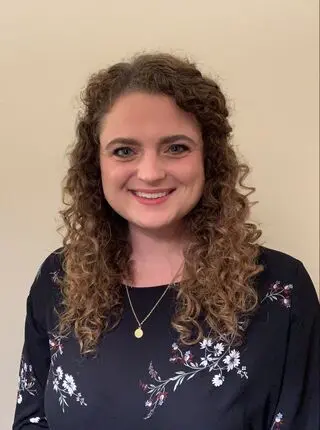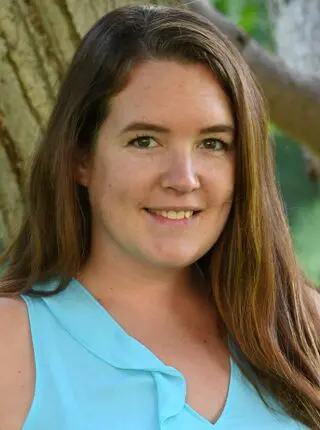T32 Brain Injury Training Grant
NIH-NINDS T32 Brain Injury Training Grant (BITG) Research Fellowship Program provides excellent mentoring for highly motivated clinician and basic scientists to prepare them for careers in nervous system injury research. Our trainees acquire basic science research skills that address the etiology, pathogenesis, diagnosis, treatment, and prevention of injury to the nervous system, such as traumatic brain injury (TBI), cerebral ischemia (stroke) and spinal cord injury. Since its inception in 2003, the success of this program has continued to expand, with 11 trainees obtaining faculty positions (5 neurosurgeon clinician scientists and 6 PhD scientists), 1 trainee has joined the NIH administration and 2 trainees have gone on to positions in the biomedical research industry. BITG offers 4 postdoctoral fellowship slots for individuals with a strong interest in studying injury to the nervous system. There is potential for a second year of training support, but not guaranteed. These positions will typically be filled by two neurosurgical residents during their strictly protected research training and two PhD scientists. Trainees actively participate in selecting the mentor and laboratory. To become integrated with the greater BITG community, trainees are encouraged to engage in multiple opportunities, such as seminars, courses, and scientific retreats. Considering the growing understanding of the impact of nervous system injury on society, the BITG plays an important role in training future leaders in this area. In particular, the BITG provides a novel infrastructure involving a highly collaborative faculty and excellent facilities to train future clinical and basic research scientists in nervous system injury.
Contact Amy Carthy for an application and to learn more about appointments.
2023-24 Appointees
Ehsan Mirzakhalili, PhD
Postdoctoral Fellow, Wolf Lab, Neurosurgery
2022 - 23 Appointee
2023 - 24 Appointee
Project Title: Impact of TBI on Dynamics of Spatio-Temporal Ensembles in the Hippocampus
John D. Arena, MD
2023-24 Appointment
Research Interests: Complex spine/deformity, neurotrauma, neuro-oncology, chronic traumatic encephalopathy
Yohannes G. Ghenbot, MD
2023-24 Appointment
Research Interests: Spine, complex spine/deformity, peripheral nerve, neuro-oncology/skull base, sensorimotor restoration for paralysis
Kathryn Jacobson, PhD
2023-24 Appointment
Project Title : Mechanisms of Amyloid-β Deposition and Clearance after Traumatic Brain Injury in Swine
Past Trainees
Rachel Blue, MD

2021-22 Appointee
Project Title: Organoid-based cortical repair following traumatic brain injury
22f0The long-term goal of our research is to develop a translational strategy for reconstructing damaged cortex with restoration of cortical function but the ideal parameters for rebuilding cortex are unknown. The overall objective of the current proposal is to examine the optimal timeframe of transplantation following cortical injury. Our central hypothesisis that acute transplantation following cortical injury will improve integration, appropriate synaptic connection, and functional outcomes. Our preliminary data show robust organoid transplantation outcomes following acute aspiration cavity and controlled cortical impact (CCI) injury. Following a CCI injury we will transplant human cortical organoids into the motor cortex of adult rats in the acute or chronic phase of injury and assess the extent of appropriate connectivity with the brain by mapping graft efferents (GFP+ projections), functional integration, and motor recovery.
2022-23 Trainees
Katherine Hunzinger, Ph.D., ACSM-CEP, CPT
Postdoctoral Research Fellow, Department of Biostatistics, Epidemiology, and Informatics
2022-23 Appointee
Project Title: Vascular Risk Factor Reduction for Post-TBI-Related Dementia
The long-term goal of our project is to investigate vascular risk factor reduction as a high priority target for future studies investigating strategies to prevent post-TBI-related dementia. The overall objective of the current proposal is to utilize existing data from one of the world’s largest and most comprehensively phenotyped ongoing longitudinal traumatic brain injury (TBI) studies, the
Transforming Research and Clinical Knowledge in Traumatic Brain Injury (TRACK-TBI) Study, to investigate the relationship between vascular risk factors, vascular risk factor severity, and treatment of vascular risk factors are associated with cognitive outcomes and cognitive trajectory post-TBI. We hypothesize that TBI patients with comorbid vascular risk factors will have greater cognitive decline in the first year post-TBI compared to individuals with a comparable TBI without vascular risk factors; TBI patients with greater vascular risk factor severity will have more cognitive decline in the first year post-TBI compared to individuals with comparable TBI but no or less severe vascular risk factors; and TBI patients with untreated vascular risk factors will have greater cognitive decline in the first year post-TBI compared to individuals with comparable TBI and treated vascular risk factors.
Alexa Walter, PhD

Postdoctoral Research Fellow, Neurology
2021-22 Appointee
2022-23 Appointee
Project Title: Biomarkers of Traumatic Axonal Injury
This study aims to validate a blood-based biomarker specific to TAI in comparison to the current gold standard marker, DTI. New methods are being introduced to better address the exiting gaps to more easily identify biomarkers of injury. In particular, peripheral blood biomarkers, specifically neurofilament proteins (neurofilament light chain (NfL), phosphor-neurofilament heavy chain (p-NfH) and phosphorylated tau proteins (p-Tau181 and p-Tau231), offer great promise as markers of axonal injury5 and are better suited for longitudinal assessment and earlier-stage identification of TAI. If a blood-based biomarker specific to TAI can be validated against the current gold standard marker, DTI, it offers great promise for future clinical work.
My proposed project will utilize existing blood samples and magnetic resonance imaging (MRI) sequences collected through the Transforming Research and Clinical Knowledge in Traumatic Brain Injury (TRACK-TBI) initiative (U01 NS086090) and the Pennsylvania Consortium for TBI (PACT), and will be carried out in coordination with a recently funded U01 project awarded to my mentor, Dr. Diaz-Arrastia (U01 NS114140). The biochemical assays (for p-NfH, p-Tau181, p-Tau231) and neuroimaging analyses proposed are novel and were not included in the currently funded projects.
Tricia Roby, PhD

2020-21 Appointee
2021-22 Appointee
Project Title: Cerebrovascular function following concussion in a pediatric population
My research project aims to explore cerebrovascular function in the acute, post-acute, and post-recovery/chronic phases following concussion in pediatric patients. Additionally, we are exploring how sex and pubertal status affects cerebrovascular function across these same time points. To do this, we utilize transcranial Doppler to monitor changes in cerebral blood flow velocity in response to two physiological stressors: a breathing task and a visual task.
Nikki Tanneti, PhD

2020-21 Appointee
2021-22 Appointee
Project Title: Characterizing neurotropism of the coronaviruses MHV and SARS-CoV-2
The COVID-19 pandemic, caused by the emergence of the coronavirus SARS-CoV-2, is associated with a range of neurological symptoms in patients, suggesting that neuronal damage is a consequence of infection in some patients. To elucidate coronavirus induced neuronal damage, I will carry out infections with this novel coronavirus, SARS-CoV-2, and utilize the well-established murine coronavirus MHV mouse model, to characterize mechanisms of virus replication, transport to the brain, and induction of neuronal damage. This proposal will significantly impact our understanding of neurological disease associated with coronavirus infections, identify molecular mechanisms for drug targeting, and provide methods to assess therapeutics.
Abigail Bretzin, PhD

2020-21 Appointee
Project Title: Utilizing Electronic Health Records and the Penn Data Store to Investigate the Incidence, Characteristics, and Management of TBI in Adult Patients in the University of Pennsylvania Health System
ec0This study is an investigation of TBI and healthcare utilization in adults across a large health system. I aim to investigate the incidence of TBI across the UPHS and determine the frequency and reasons for follow-up visits related to TBI while including key demographic factors that may influence the diagnosis, point-of-entry into the health system, and healthcare utilization following TBI. To date, I have secured IRB approval, submitted my Data Analytics Center Report Request. In addition, my collaborative mentor group has classified ICD-9 codes, to be cross-mapped with ICD-10, to categorize severity of TBI.

